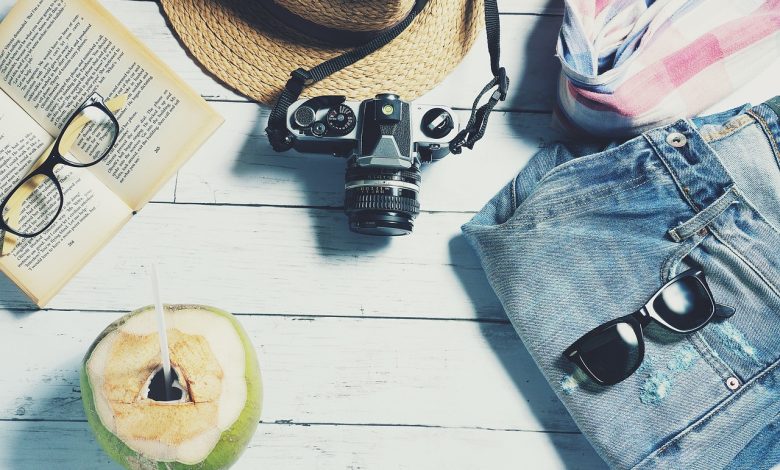The Ultimate Guide to Sustainable Travel: Tips and Tricks for Eco-Friendly Explorers

You’ve heard it before: the world is in trouble. The environment is getting warmer and more polluted every day, but human beings are causing the problem. One way you can help is by traveling sustainably while you’re on vacation—and that’s exactly what this guide will teach you how to do! Sustainable travel isn’t hard, either. Even if all you do is keep plastic bags out of the ocean and recycle your beer cans, your efforts will help make our planet a healthier place for generations to come. So grab yourself an umbrella drink and let’s get started!
Get the Most Out of Your Airline Miles
As a traveler, you’re probably familiar with airline miles. They’re one of the most popular points systems for frequent fliers to earn free flights or upgrades. But do you know how to use them effectively?
Here are some tips for maximizing your mileage and getting the most out of your travel experience:
- Do Your Research Before Booking Your Flight: Before buying a ticket, check out all possible options first. You might find an even better deal than what was available when you initially searched! For example, when I booked my flight from New York City to Milan last year (via London), it cost me over $2k USD round trip–but if I had scrolled down just a little bit farther on Kayak’s search page for nonstop flights from JFK-LHR (JFK airport code), I would’ve seen another option costing nearly half as much ($1k). That said…
- Upgrade To First Class With Miles: If there’s anything worse than sitting in economy class while everyone else gets treated like royalty around them while they sip champagne and eat caviar…it would have been spending all those dollars on something that could have been obtained using less than half as many points by upgrading instead! My advice? Always check whether upgrading makes sense before booking anything else because sometimes paying extra cash can actually save money overall since this strategy can often lead people into making poor decisions due up front costs without considering long term benefits like earning more miles faster through frequent flyer programs.”
Avoiding Plastic Bags
Avoiding plastic bags is a great way to reduce your ecological footprint. When you’re out shopping, bring your own reusable shopping bag instead of using single-use plastic ones. If you forget it at home or don’t have enough room in your backpack for one more item, take some time before you leave the house and make sure that you have all the essentials packed–including your reusable bag!
This is especially important if you’re traveling by plane; airlines often provide free amenities such as water bottles and magazines on board, but these items are often packaged in plastic wrapping or containers. You can avoid this by bringing along an empty bottle from home that fits under the seat in front of yours (if there’s room), so when someone offers one of these items during takeoff or landing they’ll be able to fill up their own containers instead of giving them directly to passengers who haven’t thought ahead about how much waste they generate while flying high above Earth’s surface!
Avoid Packaging Waste
- Bring your own reusable water bottle. This is an easy way to reduce waste without trying too hard. If you’re staying in hostels, ask the staff if they have a water filter or tap that you can use to refill your bottle and save money on buying bottled water.
- Bring your own reusable coffee cup. Many cafes will give discounts on drinks if you bring in your own cup, which makes it worth the effort!
- Buy/make reusable shopping bags for grocery shopping or souvenirs from local markets (or both!). It’s also good for reducing plastic bag usage as well as helping out small businesses by purchasing their goods instead of buying imported products from large corporations who might not have their best interests at heart when selecting materials used throughout production cycles like packaging materials or other consumables like paper towels etcetera).
- Use reusable cutlery whenever possible–you won’t even notice after awhile because this stuff is pretty durable once it’s been washed properly first time around 😉 Plus no more worries about washing dishes after every meal either…just throw everything into one big pile so that there aren’t any leftover scraps stuck onto them anymore! This will also save space inside baggage allowance limits which could otherwise be wasted unnecessarily due solely upon weight restrictions imposed by airlines worldwide.”
Rent or Borrow Instead of Buying a Car
If you’re planning on renting a car, it’s worth considering how much more environmentally friendly your rental will be than buying your own vehicle. For example, if you were to buy a new Prius and drive it 20,000 miles every year (about the average annual mileage for U.S. drivers), that would cost $10,000 in gas alone over five years–and that’s not including maintenance costs!
Meanwhile, if you rented an electric car from Zipcar for just two weeks at $25 per day instead of driving your own car around town all day every day for five years straight… well… let’s just say there are some pretty big savings involved here!
Choose Water Transport Over Land Transport
- Choose water transport over land transport.
- The environment is impacted by land transport in many ways: it pollutes the air, destroys wildlife habitats and ecosystems, and contributes to climate change. On top of that, it’s also more expensive than taking a boat! You can travel further with less money by taking a boat (and see more too).
Skip the Charterships, But Not the Charts (or Charts)
If you’re looking for a sustainable way to explore the world’s waterways, skip the charterships and choose a cruise line that is committed to sustainability. Cruise lines like Norwegian, Royal Caribbean and Disney have made strides in reducing their environmental impact by using electric power sources on board their ships and even going solar-powered!
If you want to know what makes a sustainable charter different from its non-sustainable counterparts, check out these tips:
- Choose an eco-friendly cruise line that uses renewable energy sources such as wind power or solar panels instead of fossil fuels (coal). This will help reduce emissions into our oceans and air quality around ports of call.
- Look for signs that show how much recycled materials are used on board by asking crew members about recycling programs they have implemented throughout their fleet.
Eat Less Meat, and Less of It at a Time, Too
If you want to eat less meat, it’s best to do so gradually. This will help you adjust your palate and make sure that you don’t go hungry during the transition. You can also save some money by eating less meat at a time, which can make it easier on your wallet as well.
If you’re already vegetarian or vegan and are looking for ways to cut back even further on animal products, try eliminating dairy from your diet first–it tends to be higher in fat than plant-based foods like nuts and seeds (and therefore has more calories), so this may be an easier way for some people to reduce their intake of animal products without feeling deprived of essential nutrients like calcium or vitamin D.
Don’t Worry About Bringing Back All Your Stuff; Leave Some Stuff Behind Instead
You should never feel guilty about leaving stuff behind. It’s the right thing to do, and it’s not like you’re going to miss it. You will be happier without those extra pairs of pants and socks in your bag anyway!
- If there are any items you really want to bring back home with you (for example: souvenirs or gifts), make sure they are packed securely so they won’t break during transit. You can also consider shipping them through a service like FedEx or UPS instead of carrying them on board with you during the flight.*
Takeway: With a little bit of preparation, you can have an eco-friendly trip.
While it’s not always possible to travel in an eco-friendly way, there are a few simple steps that you can take to minimize your impact on the environment.
- Use airline miles. Instead of flying directly from point A to B, try using your frequent flyer miles on a flight that goes through another city. This will allow you to visit multiple destinations in one trip while still saving money on airfare and reducing emissions from the extra leg of your journey.
- Avoid plastic bags at all costs–they’re just not worth it! Instead, bring reusable shopping bags with you when shopping for groceries or souvenirs; these will help keep them out of landfills for good.
- Don’t waste packaging material by buying food items that come wrapped in plastic or Styrofoam containers (though these may be recyclable). Instead opt for produce sold loose from bins or bulk bins; this allows stores like Whole Foods Market® stores use less packaging materials which means less waste going into landfills when people throw away their old containers after eating their meals!
Conclusion
The best way to be eco-friendly is by being prepared. If you’re planning a trip, check out the resources below to help make sure it’s as sustainable as possible.



